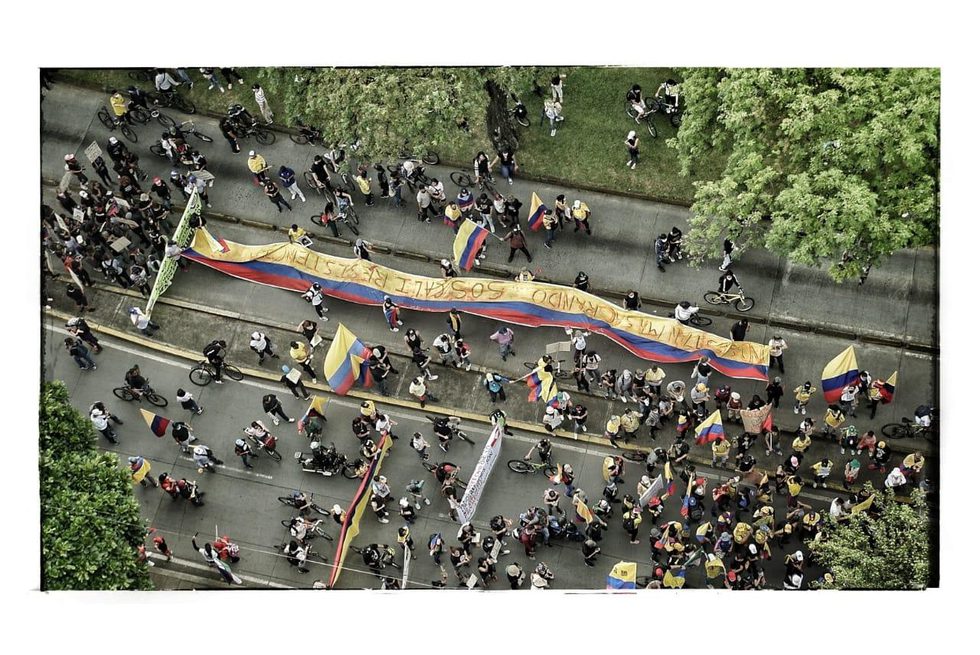
(Con traducción al español)
This series is centered on the immediacy of the dispatch genre amid the political unrest and instability that characterizes the ongoing national strike (Paro nacional) in Colombia which began on April 28, 2021. Though the detonator for protests across the country was a proposed tributary reform, the national strike builds on years of mass mobilizations against the undermining of the landmark 2016 Peace Agreement, the targeting of opposition social leaders (from December 2016 to April 2021, more then nine hundred have been assassinated), and the undoing of legislation designed to protect national natural resources, to name a few. The Paro nacional is the result of many years of collective dissatisfaction with the dealings of policy and governmental elites leading up to the mishandling of the current epidemiological crisis.
Rather than provide an exhaustive and comprehensive overview of the last ten weeks since the protests began, this series is interested in thinking with the fragmentary, the subjunctive, and the incomplete. This series brings together a group of anthropologists and artists based in Colombia or working closely with protestors and community organizers. Together, they illuminate the state of political violence wrought by the Colombian state and its paramilitary allies.
#SOSColombia: Comunicados y reflexiones desde el paro nacional
Esta serie está basada en la inmediatez del género del comunicado o “dispatch” en medio de la inestabilidad y agitación política que caracterizan el actual paro nacional en Colombia, cuya comienzo se remonta al 28 de Abril del año en curso. Aunque las protestas a nivel nacional tuvieron como detonante en común una propuesta de reforma tributaria, el paro nacional se ha construido a partir de las movilizaciones masivas en contra del desmantelamiento del Acuerdo de Paz del 2016, la persecución de líderes sociales de la oposición (entre diciembre del 2016 y abril del 2021, el número de líderes asesinados sobrepasó los 900), la anulación de legislación destinada a la protección de los recursos nacionales naturales, entre otros. El paro nacional es la culminación de muchos años de descontento colectivo con los manejos de las élites políticas y gubernamentales hasta su respuesta ante la crisis epidemiológica actual.
En lugar de proveer un análisis exhaustivo sobre las últimas diez semanas desde que empezó el paro, nos interesa pensar con lo fragmentario, lo subjuntivo, y lo incompleto. Esta serie convoca un grupo de antropologxs y artistas basadas en Colombia o trabajando de cerca con manifestantes y líderes comunitarios quienes iluminan la violencia política producida por el Estado colombiano y sus aliados paramilitares.
Acknowledgments
We are grateful to all of the authors, artists, and photographers who contributed to this dispatch series. We also thank Diana Romero, Daniel Villegas, Giselle Figueroa, and the Laboratorio de Antropología Abierta for providing assistance in some of the translations in this series. We thank Meredith Evans for her editorial comments. Lastly, we thank Alex Fattal for suggesting the dispatch format and for helping spearhead this series.
Agradecimientos
Agradecemos a lxs autorxs, artistas y fotógrafxs que contribuyeron con sus comunicaciones para esta serie. También agradecemos a Diana Romero, Giselle Figueroa, Daniel Villegas y al Laboratorio de Antropología Abierta por su colaboración con algunas de las traducciones en esta series. Agradecemos a Meredith Evans por sus comentarios editoriales. Finalmente, agradecemos a Alex Fattal, quien sugirió realizar esta serie con el formato de “comunicaciones.”
Posts in This Series

#SOSColombia: Introduction / Introducción
(Con traducción al español) The 2021 Colombian national strike is referred to as el paro nacional. The noun paro derives from the verb parar, to stop. The prote... More
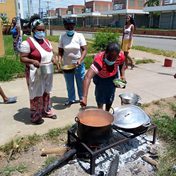
Turn off the Hunger, but Not the Pots! / ¡Que se apague el hambre pero no la olla!
(Con traducción al español) Translated by Diana Romero. The pot was lit long before the social upheaval emerged in Cali, Colombia. Young people who had gone to ... More
The Well-Off Citizens / Ciudadanos de bien
(Con traducción al español) Translated by Giselle Figueroa and the Laboratorio de Antropología Abierta. Hearing helicopters at the playground is not new for chi... More
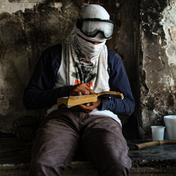
Cali: The City of Resistance / Cali: Ciudad de la resistencia
(Con traducción al español) Translated by Diana Romero Cali, Colombia, is a city where Indigenous, afro-descendent, and migrant populations converge. A place wh... More

Cali, the World Upside Down / Cali, el mundo de cabeza
(Con traducción al español) Brutal expressions of state violence have been seen in Cali during the ongoing protests since April 2021. Cali, the third largest ci... More
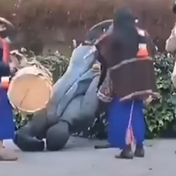
Disfigured Idols / Ídolos desfigurados
(Con traducción al español) As part of the early social protests in downtown Bogota that began on April 28, 2021, Indigenous people from the Mizak community ove... More
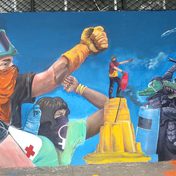
Unheeded Memories: Murals for Justice in Colombia / Memorias desatendidas: Murales por la Justicia en Colombia
(Con traducción al español) For a month now, the unnerving racket of Black Hawk helicopters lingers over Cali, Colombia, while social protests continue unabated... More
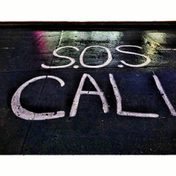
When Flowers Turned to Blood / Cuando las flores se volvieron sangre
(Con traducción al español) Translated by Giselle Figueroa and the Laboratorio de Antropología Abierta I wonder how we are still living in Cali. How we exist in... More

The Value of the Disappeared / El valor de los desaparecidos
(Con traducción al español) During a recent interview, Blanca Monroy reflected on the ongoing upheaval gripping Colombia: “they are killing our young. If they k... More